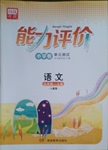题目内容
Linda is too young to find _________.
A. a work B. works C. job D. a job
练习册系列答案
 能力评价系列答案
能力评价系列答案 唐印文化课时测评系列答案
唐印文化课时测评系列答案
相关题目
Name | Age | Telephone number | City | Family members |
Eric | 15 | 8768-2029 | Chengdu | grandparents, parents, one sister |
Bob | 10 | 7033-8385 | Beijing | parents |
Amy | 13 | 3544-5681 | Guilin | parents, one sister, one brother |
Frank | 12 | 7092-5536 | Beijing | parents, one brother |
1.What’s Frank’s telephone number?
A. 8768-2029 B. 7033-8385 C. 3544-5681 D. 7092-5536
2.Two of the four students are in .
A. Shanghai B. Chengdu C. Beijing D. Guilin
3.Which is right(对的) according to the chart?
A. Bob is 13. B. Frank has one brother.
C. Eric has two sisters. D. Amy has no brothers.

